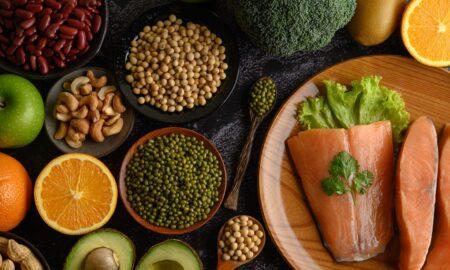Hydroxycitrate (HCA) is an extract from the rind of a fruit called Garcinia cambogia that grows on trees found in India and other Asian countries. It's often used in cooking, such as in the preparation of curries. An isolated, concentrated form of HCA is also sold over-the-counter as a fat-loss aid. A major study published two years ago in the Journal of the American Medical Association examined the effects of HCA on fat loss in humans and found it to be ineffective for that purpose.1 The researchers did say that HCA might prove effective for fat loss in humans under certain conditions. Now a new study examines the effects of HCA supplementation in exercising humans and its effects on fat metabolism during resting conditions.2 Ten cyclists, average age 24, were studied at rest and during two hours of cycling at 50 percent of maximum oxygen intake (low intensity). The men drank either a placebo beverage or one containing HCA 45 and 15 minutes before exercise and again at 30 and 60 minutes after the start of exercise. The authors carefully measured fat and carbohydrate burning during exercise through blood samples collected every half hour.
The cyclists received 0.5 grams per kilogram of bodyweight of HCA, an amount equal to six to 30 times the dose used in previous studies and far higher than that suggested by manufacturers of HCA supplements. Yet even that megadose was only 10 to 20 percent of what was used in previous studies done with rodents. Despite the large dose and the fact that HCA levels increased substantially in the blood'indicating complete absorption'HCA did not produce a greater increase in energy expenditure or increase fat oxidation at rest or during exercise.
In the men who got the actual HCA drink, blood lactate levels were lower during the first 90 minutes of exercise, but that was significant only for the first half hour of exercise. The authors explain that by noting that HCA is known to promote a process in the liver called gluconeogenesis, whereby lactate and other substances are converted into glucose.
It's often suggested that HCA could speed fat burning during exercise because it inhibits an enzyme, ATP-citrate lyase, needed for the synthesis of acetyl coenzyme-A. That's important because acetyl coenzyme-A is needed to produce 2-carbon groups that are required for synthesis of both fat and cholesterol in the body. By reducing acetyl coenzyme-A, HCA should also reduce another substance, malonyl CoA, that is stimulated by carbohydrate intake and inhibits the enzyme that works with carnitine to promote fat entry into mitochondria for oxidation. Thus, malonyl CoA prevents fat burning, and, by inhibiting it, HCA should promote increased fat burning during exercise while preserving limited glycogen stores.
What works on paper doesn't always translate into actual practice, however. Another corollary is that what works for mice or rats doesn't always work for humans. A notable example of that is another new study, this time with mice, that found opposite effects of HCA to the human study just described.3 In this study mice given 10 milligrams of oral HCA showed increased fat oxidation during exercise along with a notable glycogen-sparing effect.
The study found that HCA use promoted increased glycogen synthesis in mice. Purveyors of HCA supplements often say that it promotes the synthesis of carbohydrate to glycogen instead of conversion to bodyfat. That appears to be true'at least in mice'based on the new study.
Adding to the contradictory nature of HCA research were several studies presented at the Society for the Study of Ingestive Behavior 2000 meeting, held last July in Dublin, Ireland. In a study presented at that conference, HCA given to 12 obese males and 12 obese females for six weeks led to a decreased energy intake over what occurred with subjects receiving a placebo. A study involving rats showed that HCA was effective in helping to restrict food intake and prevent weight regain after dieting; however, two other human-based studies that involved a dual intake of HCA and medium-chain triglycerides showed no effects on energy expenditure, intake or satiety.
The way it stands now, HCA does appear to help curb appetite, increase exercise endurance and promote fat loss'if you're either a rat or a mouse. IM
1 Hoymsfield, S.B., et al. (1998). Garcinia cambogia hydroxycitrate acid as a potential antiobesity agent: a randomized controlled trial. JAMA. 280:1596-1600.
2 Luc, J.C., et al. (2000). Effects of acute (-)hydroxycitrate supplementation on substrate metabolism at rest and during exercise in humans. Amer J Clinical Nutr. 72:1445-50.
3 Ishihara, K., et al. (2000). Chronic (-)hydroxycitrate administration spares carbohydrate utilization and promotes lipid oxidation during exercise in mice. J Nutrition. 130:2990-2995.




















You must be logged in to post a comment Login